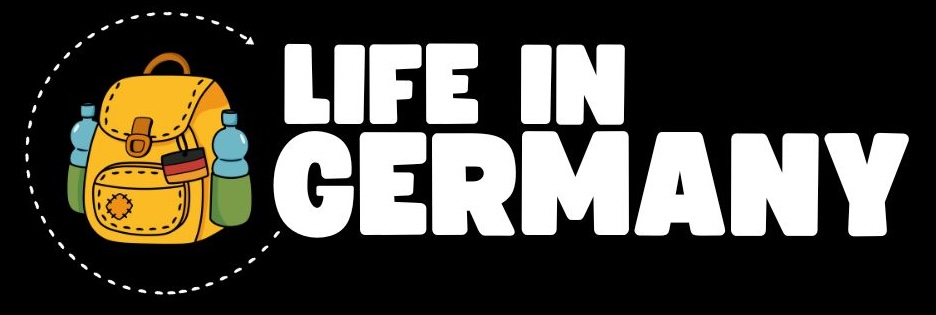How to Get Your Visa for Germany
There are so many questions regarding visa requirements, and while the laws and costs are ever-changing, you’ll find a basic overview of the options you have to get started here in Germany below.
If you’re interested in moving to Germany, there is likely going to be one very large factor standing in the way of that… your visa. You might also be asking yourself…
✅ Do I need a visa for Germany?
✅ What types of visas can I consider?
✅ How can I apply for a visa?
✅ How long does it take to get a visa?
✅ Is one visa better than another?
✅ How long is a visa valid?
DO YOU NEED A VISA WHEN COMING TO GERMANY?
If you are a citizen of the European Union, the EEA (Iceland, Norway, Liechtenstein), or Switzerland you do not require a visa to live or work in Germany. Even better news, your driver’s license will also be valid here in Germany.
If you are a citizen of countries like Canada, the USA, Australia, New Zealand, Japan, Korea, or one of the other 62 countries on the immigration office list, you have a maximum of 3 months to stay (within 180 days) in Germany visa-free. However, you will likely need to fill out a visa waiver form from The European Travel Information and Authorization System (you might know this as ETIAS). This is simply a pre-screening process for visitors who are exempt from the standard visa requirements.
TOO MUCH TO HANDLE? If you’re already reading this and stressing out, I’d recommend checking out an online visa service like iVisa (featured on BBC) – here they’ll do all the paperwork for you. Prices often vary depending on the company you go with, but I do know that iVisa offers some of the best prices.
Many of the citizens from the above-mentioned countries choose to use these 3 months to move to Germany and apply for their visa and residence permit while on location. If this is something you are interested in doing, you’ll find more information in our Welcome Program.
If you are not a citizen of one of the above-mentioned countries on the list, then chances are you are going to need to apply for a short-term visa before you arrive in Germany. To do that, you will need to visit the German Embassy or Consulate nearest to you, in your home country to start the paperwork process. Alternatively, as mentioned you can use an online visa service if you’d like the take the work off your shoulders.
You can find a full list of embassies and consulates around the world here.
There are several different short-term visas you can consider. The most popular option is the tourist/visitors visa, but there are other reasons one may like to come to Germany for up to 90 days:
- Business
- Trade fair
- Event Purposes (sports, filming, etc.)
- Recognition of professional qualifications
- Internship
- Short-term German course
- Transit
- Spouse/Relative visit
The above-mentioned visas are all valid for a short-term stay. If you need a long-term visa, keep on reading!
WHAT TYPES OF VISAS CAN YOU CONSIDER?
In addition to the short-term visa that some foreign nationals require to enter the country, every citizen located outside of the EU, EEA, and Switzerland will require a long-term visa to stay and work in Germany. There are several visas you can choose from. Simply read the description of each one below, and decide which visa may suit your current situation best.
If you would like to learn more about which visa may be best for you, join us over in the Welcome Program.
Employment Visa
A common long-term visa for foreigners is the employment visa. If you have a job offer in Germany, this visa is perfect for you. These jobs usually need highly skilled workers. There are also other types of visas related to work, like the work and travel visa and au pair visa, which you may also qualify for.
Freelance Visa
If you want to start a business in Germany, a freelance visa could be a good choice. This visa usually lasts for a maximum of 3 months. You can extend it, but you will need to apply for a residence permit. To extend your permit, you must show that your freelance work is successful enough to support yourself and any dependents.
Language Course Visa
Learning German can be a great way to get a visa to the country. If you plan to take an intensive German course, you might be able to get a visa for up to 12 months. Your visa will last as long as the course but no longer.
Student Visa
If you’ve been accepted to a German school (like a university, internship, or doctorate program) or are waiting for an acceptance letter, you need to apply for a student visa.
Job Seeker Visa
The job seeker visa is a long-term visa, but you can only use it for 6 months. This means you have 6 months to find a job. After getting a job, you can apply for a long-term work visa. Note: Not everyone can get this visa. You need a bachelor's or master's degree from a recognized German university (or an equivalent degree from another country) and at least 5 years of relevant work experience.
Opportunity Card
As of June 2024, Germany has launched the new Chancenkarte (in English, Opportunity Card) and it’s expected to make some huge changes for Germany and for non-EU citizens wanting to move to Germany. For more information about the Chancenkarte, click on this section.
Family Reunification Visa
If you have family in Germany and want to join them, either for a short time or permanently, you can apply for a family reunification visa. You'll need to show that your family member in Germany can financially support you while you're there. If you are a spouse, child (under parental care), or parent of a German resident who needs care or can provide care, you can apply for this visa. Other relatives might be able to apply too, but it can be harder to get unless you can show that not getting the visa would cause hardship.
Visiting Scholar Visa
If you're a scientist or researcher with a partnership at a German institution for your research, you'll need a visiting scholar visa. This visa has specific requirements based on your research and the institution. It's best to contact your nearest German embassy or consulate for more details.
Medical Visa
If you are considering coming to Germany in order to seek and/or receive medical assistance, you will need to apply for the medical treatment visa. This visa is designed for individuals who require medical care not available in their home country, or who wish to take advantage of advanced medical facilities and expertise present in Germany.
Once you have decided which visa best suits your current situation, it is best to contact the closest embassy/consulate to you to get the appropriate forms.
NOTE: If you intend to stay longer than 90 days within a 180-day period, then in addition to one of the above visas, you will also be required to obtain a residence permit in Germany shortly after your arrival.
HOW DO YOU APPLY FOR A VISA?
Once you’ve figured out which visa you’d like to apply for, it is simply a matter of filling out all of the paperwork that the consulate or embassy has provided to you for that particular visa (or which you have downloaded online from the appropriate embassy websites) and submitting these documents in their original version back to the consulate/embassy. Or, contact an online visa service center which will do the bulk of the work for you.
You will more than likely be required to provide 2 sets of original documents and will need to submit these documents in person (make sure you book an appointment ahead of time).
There are also a few things you’ll have to prove to successfully obtain a visa:
- You’ll need to have a clear purpose for obtaining the visa
- You’ll need to have enough funds in the bank to finance yourself in Germany
- You’ll need a letter of invitation from a German source (friend, family, language school, employment, university, etc.)
- You’ll need a clean record
- You’ll need proof of accommodations (hotel, Airbnb, family, friends, rental, etc.)
- And visa-approved travel health insurance
And a few things that you’ll need to provide:
- A completed application form (you may require 2 sets)
- A valid passport
- 2 valid passport-size photographs (you can do this online now)NOTE: Requirements change based on where you are coming from and what type of visa you require. For a full list, make sure you contact the appropriate consulate or embassy.
HOW LONG DOES IT TAKE TO GET A VISA?
The answer to that question is going to entirely rely on what type of visa you have and whether or not you provide all the correct documentation upfront. Other factors may also come into play as we’ve noticed during the pandemic (where visa processing comes to a complete halt) or simply when there is an influx in visa applications being submitted.
Typically, if you have a work contract in Germany, the visa process should go quite quickly. However, standard times are usually up to 3 months.
Digital Support
Explore my collection of practical, family-friendly digital resources – designed to support multicultural families in feeling confident, connected, and at home in Germany.

Free 12-Step Checklist

1-on-1 Video Call

Life in Germany Welcome Program

Life in Germany for Kids
Get Culturally Ready
I’ve spent the last 10 years collaborating with experts in various fields and perfecting the process for moving to Germany. However, that doesn’t mean my process was easy! I have so many stories to tell and tips to share.
